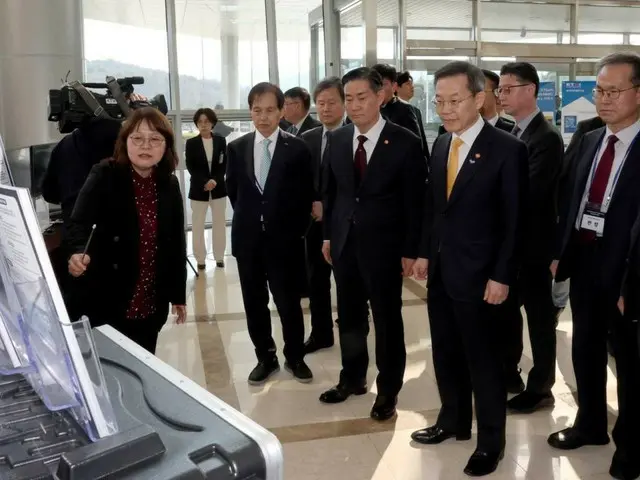Minister of Defense Shin Won-sik, Minister of Science, Technology, Information and Communications Lee Jung-ho, KAIST Director-General Lee Kwang-hyeong, and the vice chiefs of staff of each military were in attendance.
The National Defense AI Center was established as an organization responsible for policy support and technology development to foster a strong army in artificial intelligence science and technology. Selected as a national policy issue “Defense Innovation 4.0”
and its creation has been progressing. Based on his expertise in artificial intelligence, he will be responsible for the rapid and efficient introduction of artificial intelligence into the defense sector.
The center brings together approximately 110 experts, including civilian researchers with technical expertise and active duty military personnel with military expertise.
. In the future, we will develop artificial intelligence-based manned/unmanned composite systems, core technologies related to artificial intelligence such as battlefield situation recognition, military artificial intelligence planning support and technology planning, and production of civilian artificial intelligence technology for military application.
Performs roles such as strengthening academic-government collaboration. Kwak Ki-ho, director of the National Defense Advanced Technology Research Institute, was appointed as the center's first director. He is a machine learning professor at Carnegie Mellon University in the United States.
He is an expert in the field of AI and has a doctorate in the field. He has been praised for his high level of understanding of the national defense field. Director Kwak said, ``The National Defense AI Center is a system for the development of national defense artificial intelligence.''
We want to turn it into a research tank and research and development hub." Minister of Defense Shin said, ``The launch of the National Defense AI Center is the cornerstone for accelerating the construction of a strong science and technology military.
We will build an overwhelming national defense force that will secure power and realize peace through force." Prior to this, in February, Defense Minister Shin announced that he would be working on the development of artificial intelligence technology for weapons systems related to the National Defense AI Center.
He previously announced that he plans to focus on discovering and applying civilian technologies that can be applied to the national defense field, and that he will also be responsible for supporting the Ministry of Defense's establishment of artificial intelligence policies and strategies.
The ministry plans to prioritize the use of artificial intelligence technology to improve the work environment that soldiers can experience.
In addition, we will develop a combined manned/unmanned combat system in preparation for a reduction in military forces amidst a population precipice.
The plan is to build a system that can efficiently collect and analyze various battlefield information and develop a command and control system that can support commanders' decision-making.
The ministry said the establishment of the Defense AI Center will enable the defense sector to more efficiently and strategically secure cutting-edge AI-based capabilities.
He also expressed hope that the program would be able to provide alternative plans to deal with changes in the national defense environment, such as changes in the battlefield environment due to the emergence of advanced technology and troop reductions.
In response, the Ministry of National Defense and the Ministry of Science, ICT and Communications announced on the same day that Minister of Defense Shin and Minister of Science, ICT and Communications Lee
The two ministries signed a memorandum of understanding to strengthen cooperation in the field of defense science and technology, with the Minister of State for Defense in attendance. The two ministries will cooperate in research and development for civil-military technical cooperation and in the training of human resources in science, technology and digital fields, and will strengthen personnel exchanges between departments.
The two sides will promote exchanges of ideas and joint education. They will also run the Future Defense Science and Technology Policy Council and working-level councils for each major field. The councils are scheduled to meet in the first half of this year to discuss specific cooperation issues.
2024/04/02 06:16 KST
Copyrights(C) Herald wowkorea.jp 104

